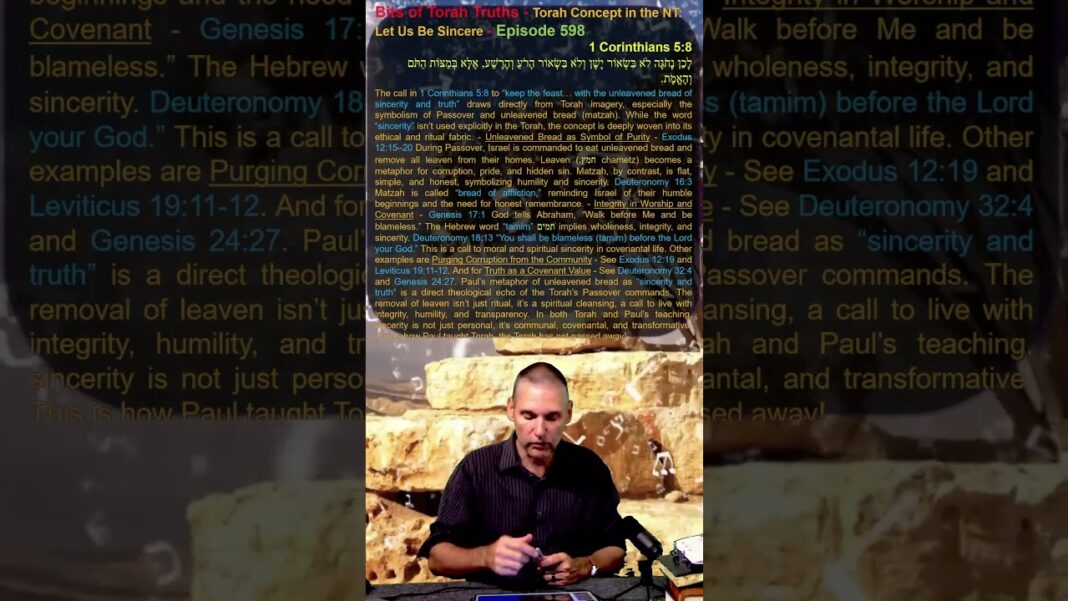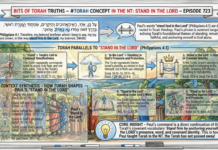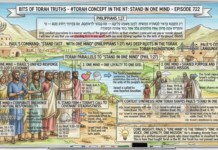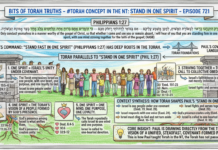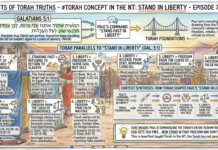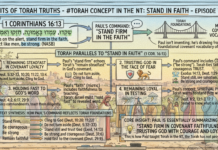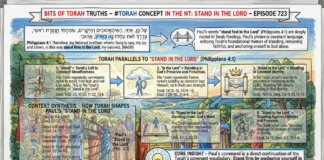Bits of Torah Truths – Torah Concept in the NT: Let Us Be Sincere – Episode 598
1 Corinthians 5:8
לָכֵן נָחֹגָּה לֹא בִּשְׂאוֹר יָשָׁן וְלֹא בִּשְׂאוֹר הָרֹעַ וְהָרֶשַׁע, אֶלָּא בְּמַצּוֹת הַתֹּם וְהָאֱמֶת.
#torah #torahwisdom #torahtruth #torahforlife #torah4you #torahtruth
1 Corinthians 5:8
5:8 Therefore let us celebrate the feast, not with old leaven, nor with the leaven of malice and wickedness, but with the unleavened bread of sincerity and truth. (NASB)
https://www.matsati.com/index.php/category/bits-of-torah-truths/
The call in 1 Corinthians 5:8 to “keep the feast… with the unleavened bread of sincerity and truth” draws directly from Torah imagery, especially the symbolism of Passover and unleavened bread (matzah). While the word “sincerity” isn’t used explicitly in the Torah, the concept is deeply woven into its ethical and ritual fabric. – Unleavened Bread as Symbol of Purity – Exodus 12:15–20 During Passover, Israel is commanded to eat unleavened bread and remove all leaven from their homes. Leaven (חמץ, chametz) becomes a metaphor for corruption, pride, and hidden sin. Matzah, by contrast, is flat, simple, and honest, symbolizing humility and sincerity. Deuteronomy 16:3 Matzah is called “bread of affliction,” reminding Israel of their humble beginnings and the need for honest remembrance. – Integrity in Worship and Covenant – Genesis 17:1 God tells Abraham, “Walk before Me and be blameless.” The Hebrew word “tamim” תמים implies wholeness, integrity, and sincerity. Deuteronomy 18:13 “You shall be blameless (tamim) before the Lord your God.” This is a call to moral and spiritual sincerity in covenantal life. Other examples are Purging Corruption from the Community – See Exodus 12:19 and Leviticus 19:11-12. And for Truth as a Covenant Value – See Deuteronomy 32:4 and Genesis 24:27. Paul’s metaphor of unleavened bread as “sincerity and truth” is a direct theological echo of the Torah’s Passover commands. The removal of leaven isn’t just ritual, it’s a spiritual cleansing, a call to live with integrity, humility, and transparency. In both Torah and Paul’s teaching, sincerity is not just personal, it’s communal, covenantal, and transformative. This is how Paul taught Torah, the Torah has not passed away!
